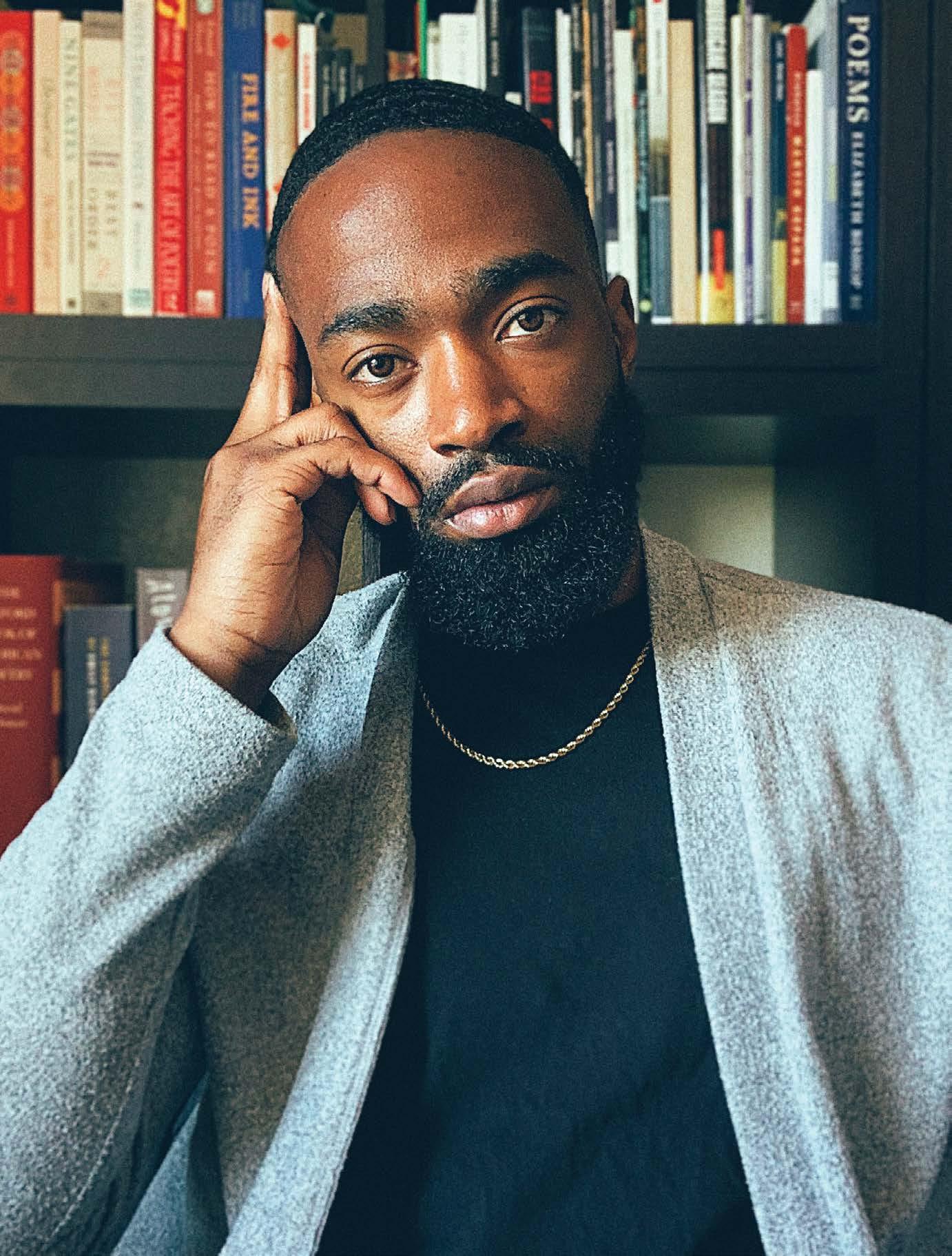
3 minute read
Magazine | Poetry with Purpose
Poetry with Purpose
Professor aims to inspire students to ‘see the possibilities’
Advertisement
Professor Daniel Summerhill has wanted to teach at the college level since he was in junior high. “A professor of what, I didn’t know, but I was enthralled by college and the idea of the academy,” he said.
Though he always loved writing, Summerhill struggled in school as a young person growing up in Oakland. When he reached eighth grade, two events set him on the course that would lead him to his dreams.

Daniel Summerhill
Photo provided
First, he found a notebook of his older sister’s poetry. Inspired by her writing, Summerhill turned in a poem to his English teacher, Mr. Ross. Ross urged Summerhill to keep writing, going out of his way to buy him a journal for his poems.
“It meant so much to me — him taking the time, spending a few bucks on that journal, and offering that encouragement,” Summerhill said.
He spent high school writing poems, and began performing in poetry slams in college. He went on to earn his Master of Fine Arts in creative writing from the Solstice program at Pine Manor College in Massachusetts.
Summerhill has toured nationally and internationally as a performance poet. In 2018 he received an invitation from the University of KwaZuluNatal in South Africa and the U.S. Embassy to teach and perform at the International Poetry Africa Festival. His first book, “Divine, Divine, Divine,” will be published in January, and his second book is in the works.
Summerhill joined the CSUMB faculty in Fall 2019 as an assistant professor in the School of Humanities and Communication. He was drawn to the social action component of the creative writing program. Inspired by the work of James Baldwin and other novelists and poets, Summerhill said: “Poetry is a political thing. It involves telling the truth.”
Summerhill works to have the same impact on his own students that Mr. Ross had on him. “A lot of educators have a one-track mind about the way people learn. A one-size-fitsall model for teaching. That’s not true. I learned in different ways, and it made me interested in better ways of teaching.”
One of his favorite methods was inspired by another teacher of his, Nicole Terez Dutton. It’s called “Borrowed Tools.”
“It’s borrowing from other forms of media to talk about poetry,” he explained. He uses pop culture references such as a film to illustrate a point of view, or a popular song to discuss tension and syntax. It’s figuring out how to translate poetry to students in a way they connect with.
Now, in his second year as a faculty member, Summerhill is adapting his teaching techniques for distance learning.
“It takes a little more work to foster empathy, connection and natural conversation on Zoom,” he said. One of the silver linings is seeing his students take more ownership of their learning.
“I had planned these Zoom workshop times to break out, but when the time came, it didn’t work. Several of the students emailed me and told me they’d figured it out and were workshopping now using FaceTime. That was an exciting moment to see the students take agency for their education.
“In writing, you think about it as trusting that the reader will do the work to understand. Now in my teaching, I’m trusting my students to be diligent, focused … and to troubleshoot.”
So far, most students are rising to the challenge, Summerhill said. He was especially proud to see one of his students, Nick Meadows, have an essay they had worked on in class published in the literary journal Quirk.
“It was his first time submitting, and when it was selected for publication he was so excited. And so was I. Equally, if not more,” Summerhill said.
“Professorship is being a vehicle for folks — seeing the growth and helping students see the possibilities and have those lightbulb moments.”
– Liz MacDonald

